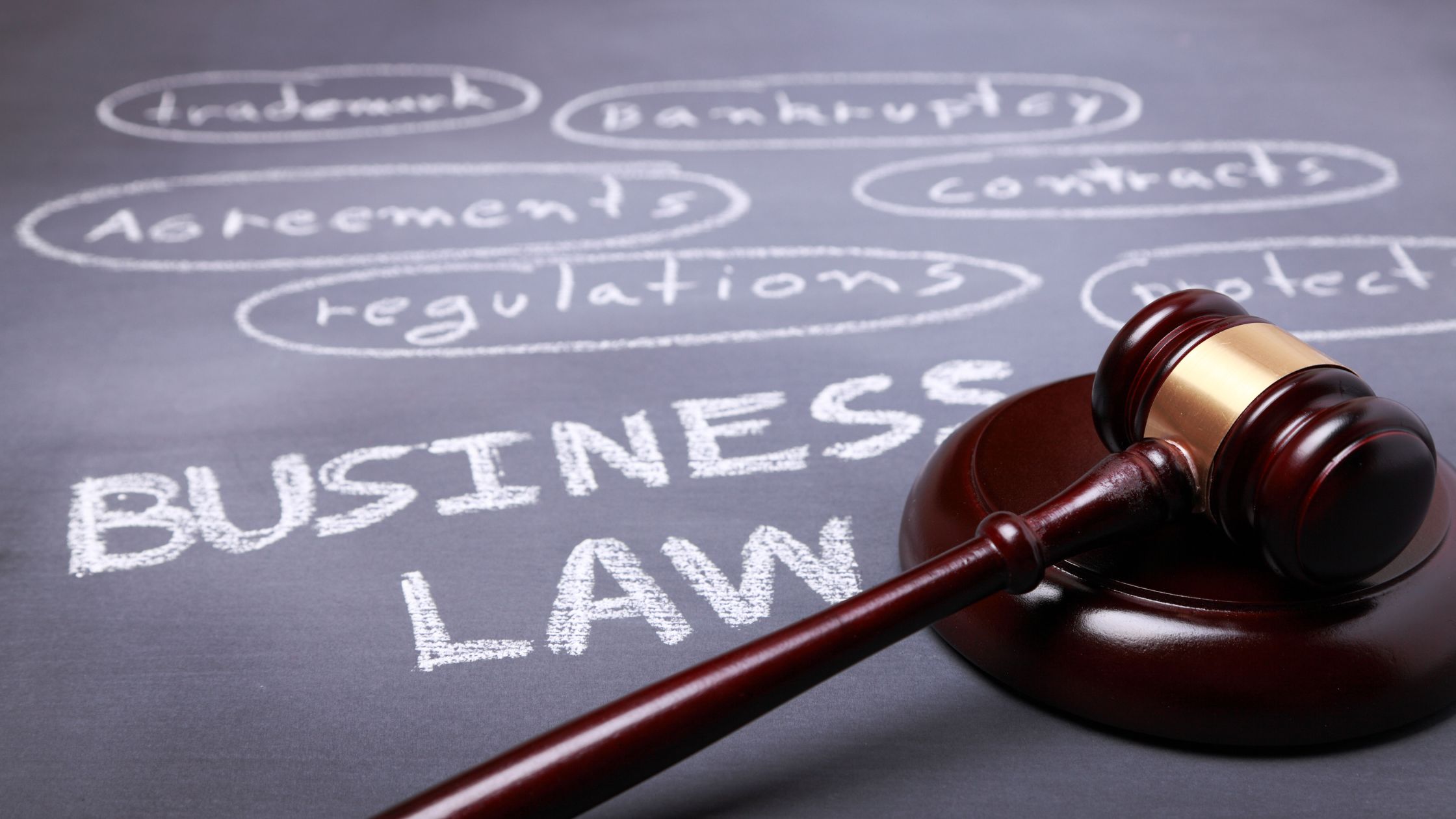Most people see suing a business in NJ as a true David-and-Goliath scenario, but it’s more feasible than you might think. You just need to start in the right court and name the right defendant(s). If you’re wondering how to file a lawsuit against a company in New Jersey, or about the steps to sue an NJ small business, don’t fret. A business lawyer in NJ can highlight the best, safest path. If you want a broader look at common paths people take before filing, you can read more on how to resolve business disputes.
Let’s break down how you can file a lawsuit against an NJ business into some bite-sized, manageable steps.
Quick Answer: How to Sue a Business in NJ in 9 Steps
To sue a business in New Jersey, confirm you have a valid money claim, then choose the correct court based on your damages. Identify the business’s exact legal entity, file a summons and complaint with the required forms and fees, and make sure the business is properly served. After filing, organize evidence, expect a chance to settle, prepare for trial, and plan how you will collect if you win.
Step 1: Make Sure You Have a Valid Claim Against a Business in NJ
Before you sue a company in New Jersey, you need to confirm your dispute belongs in civil court. Most business lawsuits are about money damages. According to New Jersey Courts self-help materials, these tracks are meant for everyday disputes.
Common NJ Business Lawsuit Claims Plaintiffs Can File
- Breach of contract
- Unpaid invoices or services
- Defective goods or misleading sales promises
- Faulty work or incomplete repairs
- Property damage caused by a business
Claims That Don’t Belong in NJ Small Claims or Special Civil
- Professional malpractice
- Family support disputes
- Probate or estate issues
- Criminal complaints
If your dispute is about money but has a complicated solution, get guidance first. A business lawyer in NJ can confirm whether Superior Court is the right forum for your grievance.
Step 2: Choose the Right NJ Court for Your Business Lawsuit
One of the first steps to sue a business in NJ is choosing the right court. New Jersey limits each track by dollar amount, and filing in a lower track can cap your recovery. Court selection shapes your whole case.
NJ Court Tracks for Suing a Business in NJ (Limits + Best Uses)
| Track | Max claim | Best for | Trade-off |
| Small Claims | $5,000 | Simple low-dollar disputes | Waives anything above $5k |
| Special Civil Part | $20,000 | Mid-value disputes | Waives anything above $20k |
| Superior Court Civil Part | Over $20k / complex | High-value or formal discovery cases | More rules and fees |
Which NJ Court Should You Use? A Fast Plaintiff Decision Tree
- Add up your damages realistically.
- Examples include refunds owed, repair costs, unpaid balances, or replacement expenses.
- ≤ $5,000: Small Claims (Special Civil).
- $5,001–$20,000: Special Civil Part.
- > $20,000 or complex issues: Superior Court Civil Part.
- Do not file low unless you accept the waiver.
When the number is close, complexity matters too. Skew higher if the case involves several defendants, unclear contracts, or out-of-state businesses. Consult your business lawyer in NJ to help map values to damages so you’re not losing out on money you could be owed.
Step 3: Identify the Correct Business to Sue (Legal Name + Entity Type)
A critical step in how to file a lawsuit against a company in New Jersey is naming the right defendant. You can’t just sue the storefront name, you need to sue the right legal entity. For example, you can’t sue “Target”, you’d need to sue “Target Corporation.” Naming the wrong defendant can delay your case or lead to dismissal.
What Plaintiffs Need Before Filing Against a NJ Business
- Exact legal business name
- Entity type (LLC, corporation, partnership, sole proprietor)
- Registered or main address
- Any contract, invoice, or receipt showing who you dealt with
How to Find a Business’s Legal Name in New Jersey
- Your paperwork
- The business website footer/terms
- New Jersey business registration records
If your claim comes from a written agreement, have a business lawyer in NJ review it. They’ll confirm who is responsible and what damages it allows.
Step 4: How to File a Lawsuit Against a Business in NJ (Complaint + Forms)
This is the part everyone thinks of when they’re asking how to sue a small business in NJ. Filing is what kicks off the actual lawsuit. You’ll submit a summons and complaint, pay a fee, and explain your claim so the business can answer.
Filing in NJ Small Claims (Special Civil) — Plaintiff Checklist
- Complete the summons and complaint.
- State what happened and the amount you seek.
- File through JEDS, by mail, or in person in the right county.
- Pay fees or request a waiver if eligible.
Filing in NJ Special Civil Part — Plaintiff Checklist
- Complete the summons and complaint.
- File in the county where a defendant is located or does business.
- List each defendant with a working address.
- Pay the fee tied to your claim amount.
Filing in NJ Superior Court Civil Part — Plaintiff Checklist
- Draft a verified complaint.
- Complete the Civil Case Information Statement.
- File with the Superior Court fee.
- Watch for a Track Assignment Notice.
Mistakes That Can Get Your NJ Business Lawsuit Dismissed
- Wrong county or wrong defendant name
- Missing required forms
- Filing sensitive identifiers without redaction
It’s easy to get lost in the dense procedures of Superior Court, so a business lawyer in NJ can be your guide through the process of protecting your claim’s value.
Step 5: Serve the Business Correctly So Your NJ Case Can Move Forward (Service of Process)
Service is the formal notice that gives the court power over the defendant. Without valid service, your case cannot move forward. This step is often what trips up plaintiffs suing a company in New Jersey for the first time.
How Service of Process Works When You Sue a Business in NJ
- Small Claims (Special Civil) and Special Civil Part use court mail service to the address you provide.
- If mail service fails, you may need re-service through a court officer.
- Superior Court generally requires personal service by sheriff or process server.
NJ Plaintiff Service Checklist (Don’t Skip These Steps)
- Confirm the address before filing.
- Track service status.
- Keep proof of service.
- Fix failures quickly.
A business lawyer in NJ can help if the defendant is hard to locate or operating under many entities.
Step 6: What Happens After You File a Lawsuit in NJ (Timeline + Deadlines)
After you file and serve your complaint, the case enters its timeline phase. After serving the business, deadlines kick in. Staying aware of them keeps the case moving.
High-Level NJ Business Lawsuit Timeline for Plaintiffs
| Stage | What happens |
| Answer | Business responds, usually within about 35 days of service |
| Conferences | Court may schedule settlement talks or mediation |
| Trial | If no settlement, the judge hears evidence |
| Judgment | The court decides the case |
If the business does not answer, you can request default and then default judgment. You still must prove your damages, even if the other side stays silent.
Step 7: Gather the Evidence You Need to Win Against a Business (Proof)
Whether you are suing a small business in NJ or a larger company, your case won’t go anywhere without evidence. Courts decide cases on proof, so organize evidence early. If your case involves unpaid invoices or payment disputes, it may help to review five mistakes businesses make when collecting overdue invoices in New Jersey so you can anticipate the defenses a business might raise.
Best Evidence for Plaintiffs Suing a Business in NJ
- Contracts, estimates, or proposals
- Invoices, receipts, and proof of payment
- Emails or texts showing promises or admissions
- Photos or video of damage or defective work
- Witnesses who directly saw the events
According to New Jersey Courts guides, live testimony is stronger than written statements. If someone matters to your story, do your best to get them to attend in person. If your proof is technical, a business lawyer in NJ can determine whether expert testimony is worth it.
Step 8: What to Expect on Trial Day When You Sue a NJ Business (Hearing)
Attempt settlement first, but trial is the backup plan if that fails. Even in Small Claims, preparation matters. This is your chance to clearly prove what the business did and what you are owed.
Trial Day Checklist for NJ Plaintiffs
- Originals and copies of evidence
- A simple timeline
- Witnesses
- A clear damages breakdown
If the business does not appear, the court may enter default judgment after you show what they owe you. If both sides appear, you present first.
Step 9: How to Collect Money After You Win Your NJ Case (Judgment Enforcement)
A judgment is a legal win, but you may need to enforce it. Plaintiffs often search for this step after winning, because collection can feel like a second phase of the case. If you want a deeper breakdown of your options, see how to enforce a judgment in New Jersey and what judgment enforcement is and how it works.
Common NJ Judgment Collection Tools for Plaintiffs
- Bank levy on New Jersey accounts
- Wage execution in qualifying cases
- Writs against certain personal property
- Docketing a judgment to create a lien when allowed
New Jersey Courts collection guidance explains that some writs expire and need renewal. If you expect resistance, a business lawyer in NJ can help you choose an enforcement tool.
When a Business Lawyer NJ Can Help Plaintiffs With a NJ Business Lawsuit
Small Claims is designed for self-represented plaintiffs, but some cases are too risky to handle alone. If you’re asking if you need a business lawyer in NJ to sue a company, here are some important details. If you want a fuller explanation of what counsel does in business disputes, read why hire a business lawyer in New Jersey.
Signs You Should Talk to a NJ Business Lawyer Before Filing
- Damages are near or above $20,000
- The defendant is out of state
- Many companies share responsibility
- A contract has complex dispute terms
- You need formal discovery
- Collecting a judgment may be hard
According to Superior Court materials, higher-value cases follow stricter rules and longer discovery timelines. Plaintiffs often hire a business lawyer in NJ to keep procedure from becoming the story.
Key Takeaways for Plaintiffs Suing a Business in New Jersey
- How do I sue a business in NJ? Start by confirming your claim is a money dispute, then choose the correct court track based on damages.
- What court do I use to sue a company in New Jersey? Small Claims (Special Civil) is for $5,000 or less, Special Civil Part covers up to $20,000, and Superior Court is for higher-value or complex cases.
- Can I sue a business in NJ without a lawyer? Yes, many plaintiffs handle Small Claims or Special Civil alone, but a business lawyer NJ is helpful in larger or contract-heavy cases.
- What if I sue in the wrong court? Filing in a lower track can cap your recovery, and you usually waive the right to collect more later.
- How do I name the right business defendant? Use the business’s exact legal name and entity type, not just the brand name on the sign.
- How do I file a lawsuit against a company in New Jersey? File a summons and complaint with required forms and fees in the proper county, using the track that matches your damages.
- How do I serve a business in NJ? Small Claims and Special Civil usually use court mail service, while Superior Court generally requires personal service.
- What evidence do I need to win a NJ business lawsuit? Contracts, invoices, proof of payment, communications, photos, and live witnesses are the core building blocks.
- What happens if the business ignores the lawsuit? You can request default and then default judgment, but you still must prove your damages.
- How do I collect if I win? Collection tools include bank levies, wage executions, and other enforcement options, depending on the situation.
- When should I call a business lawyer NJ trusts? If your claim is near or above $20,000, involves many defendants, a disputed agreement, or hard-to-trace assets, legal guidance can protect your case.
Your Next Steps If You’re Ready to Sue a Business in NJ
Suing a business in New Jersey works best when you follow the steps. Confirm your claim, choose the right court, and name the right defendant. Once those choices are correct, the rest is easier to navigate.
If your case involves serious damages or a disputed agreement, a business lawyer in NJ can help you avoid waiver mistakes, strengthen your complaint, and plan for collection.
Resources
NJCourts.gov – How to File a Complaint in the Superior Court of New Jersey
NJCourts.gov – Lawsuits $20,000 or less(Special Civil)
NJCourts.gov – Small Claims
NJCourts.gov – Special Civil: A Guide to the Court




